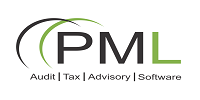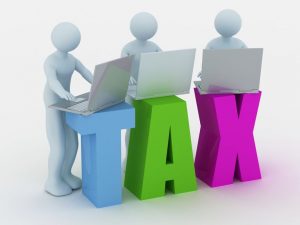Various Taxes in Nigeria; what you should know
In plain terms, taxation has been described as a way of making persons, individuals and companies contribute to growth and development of a country, through payment of money via legalized levies according to their level of income or any other criteria (Okezie 2003).
The Federal Inland Revenue Service (FIRS) however defines tax compliance as obeying provisions of tax laws willingly, without being forced. It also means registering yourself, enterprise, non-governmental organization or a government agency with tax authority and also keeping proper records, preparing tax returns, filing and payment of taxes.
Apart from being a civic and constitutional duty, consistent payment of tax by concerned bodies help to maintain steady and sustainable national development by a responsive government.
The various taxes collected by the FIRS are under listed and explained below;
- Petroleum Profits Tax (PPT): This is an act that imposes tax on profits of upstream petroleum operations. Upstream petroleum operations refers to exploration of petroleum products, mining and drilling. Downstream petroleum operations on the other hand refer to simple sale and distribution of processed oil products by local corporations. Therefore, corporations engaged in upstream exploration are subject to Petroleum Profits Tax (PPT), while downstream corporations are subject to Companies Income Tax (CIT). The current rate of petroleum profits tax is 50% for operations in the deep offshore and inland basin and 85% for operations in the onshore and shallow waters.
- Companies Income Tax (CIT): Although the rate of Corporate Income Tax (CIT) paid by a business varies from one country to another, it is imperative for a company owner to know what applies in his/her own country. Under the Companies Income Tax Act of Nigeria, a resident or non-resident company incorporated in Nigeria must pay Companies Income tax. This is done by an annual self-assessment and submission of tax returns according to specifications of the Federal Inland Revenue Service (FIRS). For non-resident companies however, tax payment is done through remittance. For CIT, tax payable for each year of assessment on profits of a company accruing in, derived from or brought into Nigeria stands at 30%. Companies paying dividends to shareholders are also obliged to first pay tax on profits at the companies’ tax rate. Below are companies subject to the Companies Income Tax:
- Companies resident in Nigeria, with the exception of companies engaged in petroleum operations.
- Foreign companies that earn their income from Nigeria.
- Organizations engaged in profit making activities other than promotion of their primary objects
- Liquidator, receiver or agent of liquidator or receiver of any taxable company or organization
- Value Added Tax (VAT): This is a tax placed on a product whenever value is added at a stage of production and at the final sale. VAT is a way of charging tax on the increase in value of goods and services at each stage they are produced, rather than just selling on their final selling price to customers.
- Personal Income Tax (PIT): This is a tax that governments impose on financial income generated by all entities within their jurisdiction. Thus, by law, businesses and individuals must file an income tax return every year to determine whether they owe any taxes or are eligible for a tax refund. A person liable to PIT is expected to compute his tax liability , file tax return and pay tax, if any, accordingly on a calendar year basis.
- Withholding Tax (WHT): Withholding tax is an advance payment of income tax. It is the payment of income tax liability of a taxpayer or company. Because it is not a distinct tax type and has no legislation of its own, WHT is only a mechanism for collection of other taxes that may have been lost through evasion and/or avoidance.
- Education Tax (EDT): Here, a tax of 2% of assessable profits is imposed on all companies incorporated in Nigeria. It is done with a view to ensuring that all companies contribute to the development of the education sector.
- Capital Gains Tax (CGT): This pertains to all gains accruing to a taxpayer from the sale or lease or other transfer of proprietary rights in a chargeable interest which are subject to a CGT of 10%. In simple terms, CGT is a tax on profits obtained from a disposal or exchange of certain kinds of assets.
It is common knowledge that breaches of tax compliance attract severe consequences, hence the need for due diligence when it comes compliance. Below are common breaches of tax compliance to avoid:
- Failure to register and obtain a TIN
- Failure to keep proper business records
- Failure to prepare and file tax returns on or before due date
- Failure to pay correct tax computed by you on or before due date
- Engaging the services of touts to transact tax business on your behalf
- Engaging in tax avoidance or evasion practices
- Transacting business without a valid TIN
- Transacting business without genuine Tax Clearance Certificate (TCC)
- Failure to charge, withhold and remit WHT, PAYE and VAT to FIRS.
- Allowing another person/company use your TIN for purpose of seeking contract award
- Payment of a particular tax type into wrong account. E.g VAT into CIT
It would be agreed that the aforementioned require professional handling by individual or service companies that will be in charge of comprehensive tax planning and management of tax compliance, as well as advice on future tax developments.
Gleaning from the not too sweet experiences of organizations that have fallen short of tax compliance, it is advisable to approach taxation with responsibility and caution.



